
BONE bruising, also referred to as bone oedema or bone contusion, is a descriptive term used for a traumatic type of bone injury.
It is diagnosed primarily by magnetic resonance imaging (MRI). The finding is characterised by a high fluid (bright) signal on a specific sequence of images taken during the scan – short tau inversion recovery (STIR) sequence. This sequence suppresses the bright fat signal normally found within the bone marrow and allows the signal from the bone bruise to be identified.
Bone bruising indicates microscopic damage to the bone, and although not as dramatic as a fracture, it can be a precursor to fracture and can be identified together with a stress fracture. For simplicity, bruising is characterised by localised bleeding and a build-up of fluid within the external framework of the bone, causing pain.
In horses it is most often found as a source of lower-limb lameness, primarily associated with the fetlock, distal phalanges (long pastern, short pastern and coffin bone) and the navicular bone. This can be attributed to the small surface area and increased loading forces that occur through the lower limb during exercise.
The region primarily affected is a layer of important bone adjacent to the cartilage surface of a joint, known as subchondral bone.
Bone bruising can be caused either by repetitive trauma following consistent strenuous exercise or following a single isolated traumatic impact. It is less associated with a kick or an external trauma, but rather an internal bone overload such as landing awkwardly after a jump.
This story is from the April 04, 2024 edition of Horse & Hound.
Start your 7-day Magzter GOLD free trial to access thousands of curated premium stories, and 9,000+ magazines and newspapers.
Already a subscriber ? Sign In
This story is from the April 04, 2024 edition of Horse & Hound.
Start your 7-day Magzter GOLD free trial to access thousands of curated premium stories, and 9,000+ magazines and newspapers.
Already a subscriber? Sign In
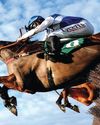
Gemirande provides 24-carat magic
Venetia Williams sparkles again in the December Gold Cup and jockey brothers dead-heat
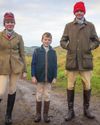
‘Happy hunting, everyone'
“The season for talks, dinners and parties has finally arrived for Tessa Waugh, whose distress about the snags of middle age fades away with some rousing festive spirits
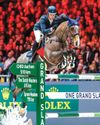
'Monaco deserved this victory
Seemingly destined always to play the bridesmaid’s role, Harrie Smolders’ great partner Monaco finally tops an incidentpacked Rolex grand prix
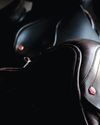
'It had to end sometime'
The closure of beloved Hampshire saddlery Calcutt Sons is a loss to the hunting and wider equestrian worlds, as Octavia Pollock reports
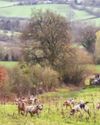
'You couldn't want for more
The Ludlow's peaceful country makes for a day in \"hunting paradise\"
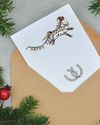
The greatest gift of all
Christmas is fast approaching and while we all like a bit of tinsel, the festive season is also a perfect time for giving to a horse charity. Niki Hinman finds out some of the options
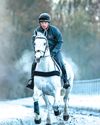
Winter him well
A horse's winter routine can differ dramatically from his summer structure but what’s the knock-on effect? Ellie Hughes asks vets how to optimise routine management for the season
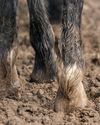
Neat feet
Excellent hoof care is a year-round concern but the winter months present their own problems. Richard Stephenson MRCVS explains the seasonal challenges afoot and how to stay one step ahead
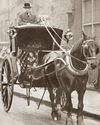
In bygone days
Modern vets have much scientific knowledge behind them, but what about their forebears? Kieran O’Brien MRCVS opens up the world of Victorian vets in London
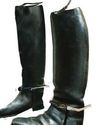
'When I joined the Pony Club it was just two boys and 48 girls'
Pepsi Kohler on being delightfully outnumbered by girls in the Pony Club, a leg-up from a royal and the H&H advert that changed his life